Healthy snacking is way more than a new year’s resolution, it’s becoming a way of life, and retailers should not overlook its potential.
We might be nearing the end of January, but one trend which certainly doesn’t look set to be thrown out with tattered tinsel and the a list of failed new year’s resolutions is healthy snacking.
Time poor, better informed and more likely to snack frequently than previous generations, the modern day convenience shopper is opting for more natural snacks with obvious health benefits, all year round and with increasing intensity.
And with the promotion and in-store positioning of foods high in fat, salt and sugar (HFSS) under close examination, the need for convenience stores to offer a convincing healthy snacking offer has never been so acute.
There are more than 19 billion snacking opportunities in the UK per year, and more than two-thirds of consumers snack at least five times a week, according to Kantar World Panel Usage data for the 52 weeks to May 2018 from Nakd Wholefoods, and the healthy snacking category has become the key player driving category value growth.
In fact, one in three shoppers now buy a healthy snack at least once a week from a convenience store, the same data reveals.
“Shoppers are now actively seeking out healthy snacks, with sugar and fat content among their top concerns,” adds Debbie King, director of commercial sales & marketing at Eat Real, the company whose range of plant-based, gluten-free and vegan snacks includes the Hummus, Lentil and Quinoa Chips.
“Changes in taste and lifestyle are heavily influencing how we are shopping today and although our tastes are diversifying, the demand for healthier snacks is as strong as ever.
“According to new research, 41% of shoppers are looking for snacks with less sugar, 39% seek out snacks that are low in fat, and 41% want snacks that provide energy or help them refuel.
“Interestingly, 40% of shoppers also expect to pay a premium for healthy snacks, so that’s good news for convenience store operators who should be prepared to increase shelf space for healthier snacks in order to capitalise on this growing demand,” she adds.
The healthy category itself is also jam-packed with fresh, vibrant and exciting new products from a wide range of independent brands, as well as mainstream manufacturers – a fact that is also allowing convenience retailers to create displays with real impact and points of difference in their stores.
A place for indulgence
Research shows that healthy aspects of more indulgent snacks, such as fibre or naturally high protein, make them more acceptable to 52% of shoppers, Matt Collins, sales director for convenience, wholesale, discounters & foodservice at KP Snacks, says.
He also points out that 54% say smaller snack packs enable them to control their calorie intake.
“When shoppers are looking for snacks 34% will look for a healthy product and 49% say they would choose crisps or savoury snacks over a sugary option,” he adds.
“The category plays well to these dynamics with its high protein content and more natural credentials.”
Last year the company launched an on-the-go range of KP Nuts in response to the fact that 39% of shoppers want to see nuts in a meal deal. The handy-sized packs of nuts and energy mixes offer a natural source of protein and fibre.
The KP Snacks portfolio also includes 23 products that are 100 calories or fewer per pack, including Pom Bear, Hula Hoops Puft, Skips and Space Raiders.
The company is reaffirming its commitment to under 100-calorie products by launching two new campaigns for 2019. Hula Hoops Puft is now on TV as part of a £1.5m ’Mouth Meditation’ campaign. Supported by digital, out-of-home media and in-store activation, the 20-second advert reminds consumers that the snack contains 72 calories per pack.
It is also injecting £500,000 into an outdoor media campaign for its Popchips brand, highlighting the message that ‘better for you’ doesn’t have to be boring.
Dave Hiscutt, manager of Londis Westham Road, Weymouth, Dorset, is one such retailer standing out with an independent range. “We’ve recently introduced a new range of products from a brand called Pulsin,” he says.
“They’re raw and wholesome which seems increasingly important to shoppers, and some of the products have added plant-based protein, too.
“The packaging is bright and bold and catches the eye. It looks totally different to some of the mainstream products we have on our shelf and adds real interest to the range, complementing the other unique products that we have become a destination store for, such as American confectionery and craft ales,” he says.
“Sales of healthy snacking products as a whole are doing really well for us. So much so, in fact, that we now dedicate a whole bay to free from and wholesome snacking products. At the same time, sales of single-bar confectionery have been on the slide.
“Five years ago we would easily sell two cases of single confectionery bars a week. Now it’s more like a quarter of a case, so it’s clear that shoppers are making much healthier choices when looking for snacks.”
The move towards natural, unprocessed, wholesome, healthy snacks, as described by Dave, is one being seen across the board, adds Matt Hunt, managing director of the Protein Ball company, which produces 45g packs of bite-size protein balls.
“Natural ingredients, wholesome snacks that are filling, satisfying and meet a need – whether that be a protein boost, energy boost or under 100 calories – are key,” he says. “It’s all about macros, balance and fuelling your body correctly.”
His words certainly reasonate with Ricky Turner, manager of Simply Fresh Surrey University, which has recently introduced a dedicated grab and go range of wholesome chilled healthy snacks including boiled eggs and spinach and chicken pieces and couscous pots.
“Our customer base is predominantly busy students, rushing in for a quick snack to help them refuel between lectures, and products which enable them to do this in a healthy and wholesome way are becoming increasingly important,” he says.
But you don’t have to be located in a university setting to make the most of the healthy snacking phenomenon, says Robert Rona, director of new markets, products and services at The Triangle Nutrition, producer of the Light Bites range. “The modern consumer spends their mornings at the gym, days in the office and evenings socialising so it’s very difficult to sit down and enjoy the three meals per day,” he says.
“Consumers are swapping sit-down meals for ‘snackfast’ options in the morning, while meals-on-the-go make lunch and dinner options much easier, relying on easy-to-make breakfast bars, porridge pots, protein shakes, noodle and pasta pots, ready-made salads and sandwiches which require minimum effort.
“These aren’t just consumed at the normal hours, as they’re often smaller versions of regular meals.
“Consumers might eat first thing in the morning and then again at 10am, or eating something en route to a meeting at 11.30am and again at 3pm when it’s finished. The flexibility and convenience of the health-conscious ‘snackification’ movement means consumers can eat what they want, when they want, without worrying about calorie intake or nutritional levels.
“It’s a food movement that retailers should be more aware of and embrace. Ultimately, it provides an increased opportunity to upsell to customers. Rather than grabbing one meal, those who prefer to eat little and often will pick up all four or five ‘meals’ in one sale. It also allows retailers to evolve their cross-category selling.”
Robert believes the trend of snacking is never going to go away, and the popularity of following a healthier lifestyle is constantly growing, “so brands and retailers would be missing a trick to not embrace this”.
What’s in vogue
When it comes to trends in healthy snacking ranges, demand is growing for so-called “clean proteins”, which are derived from plants, nuts and seeds as opposed to animals, and veganism is also driving a vast amount of change in the healthy snacking market.
Dave has seen this in his store. “Raw products and vegan items seem to be the ‘in thing’ at the moment. I think the Veganuary movement has helped to drive sales this year. I’m not sure how long this ‘trend’ will last so we’ll ride it for as long as we can,” he adds.
Launched in the UK in 2014, Veganuary is a registered charity that inspires and supports shoppers to try vegan snacks and foods for a month. Since its formation participant numbers have doubled year on year, with 168,500 people from across the world taking part in 2018. This January Veganuary was expected to see 300,000 people try vegan. Its growth reflects skyrocketing interest in veganism in the UK, with some research estimating that 7% of the UK population now identifying as vegan, according to Hippeas, maker of the organic chickpea puff brand.
“2018 saw the rise of veganism, vegetarianism and flexitarianism, which have all grown in popularity following a boost in consumers’ interest in health,” says a spokesman for Nakd Wholefoods, creators of the Nakd bar range, currently being advertised on TV.
“In fact, according to HIM, veganism has grown hugely with a 360% increase in the number of vegans in the past 10 years, correlating to consumers being more adventurous with their food, trying new foods and innovative flavours.
“It is likely that this trend will continue to grow, with many manufacturers offering vegan-friendly options within their ranges and a growing number of shoppers willing to experiment and try new foods.
“Flavour is still the biggest test for consumers, with taste being one of the core measurements of a good snack that incurs a repeat purchase.”
The start of 2019 saw the Nakd range bolstered with two new flavours: salted caramel and coffee & walnut, both of which contain no added sugar.
Lower sugar and fat
In line with its vision to offer shoppers more choice in permissible savoury snacks, Mondelez International relaunched its Ritz Original cracker and Ritz Original Breaks with 70% less saturated fat in September.
At the same time, Ritz Cheese crackers were given a recipe containing 50% less saturated fat.
The move is designed to take advantage of the fact that when it comes to snacks, 46% of occasions are chosen for health (growing at 7.7%), and 85% of consumers claim they are trying to improve some of their diet to become healthier, according to Mondelez.
The company isn’t limiting its healthier options to savoury, and relaunched Cadbury Dairy Milk with 30% less sugar. The bar, which took two years of development, delivers the Cadbury Dairy Milk taste with no artificial sweeteners, colours or preservatives and no increase in calories.
And Mondelez is promising more lower sugar innovations to follow with Cadbury Dairy Milk Perfect Pieces, which will be under 100 calories, while a 40% less sugar line extension on Belvita is set to arrive on shelves soon.
Prime position
Retailers are also taking a fresh approach to the positioning of healthy snacking products, with many stores now opting to place them in a prime position at the front of the store, on prominent aisle ends and at the till point.
Simply Fresh Surrey University’s manager Ricky also recently decided to re-site healthy snacks within his store’s busiest aisle (chilled food to go and impulse).
“We have been very bold with healthy snacking and, against what the retail handbook would say to do, we have moved single confectionery lines away from our busiest aisle and replaced them with cereal bars and healthy snacking options,” he says.
“The result has been a near 700% sales increase on the healthier snacking category with confectionery not moving at all. Those shoppers seeking chocolate seem to be happy to walk to the aisle next door to find it, while those looking for ease are equally as happy to impulse buy cereal bars and nuts.
“We have also created a dedicated end to protein options as this is by far our fastest growing food–to-go category, having come from almost nothing to now being 2% of total turnover,” Ricky adds.
According to Mondelez International, the protein bar market is now worth £51m and growing by 54% year on year as mainstream consumers look for ways to boost energy and balance their diets.
Summer 2018 saw the company launch Boost+ Protein, which contains 12g of protein via new protein crisps – four times more protein and 32% less sugar than the standard Boost bar.
Children’s snacking
When it comes to healthy snacking, there’s one segment of the market that looks set to come under the spotlight like never before in 2019, and that’s children’s products.
Last year Public Health England (PHE) embarked on a campaign designed to help parents take control of their children’s snacking with the first Change4Life campaign promoting healthier snacks.
This is because half of children’s sugar intake, currently about seven sugar cubes a day, comes from “unhealthy snacks and sugary drinks, leading to obesity and dental decay,” PHE says,
On average, children are consuming “at least three unhealthy snacks and sugary drinks a day, with about a third consuming four or more. The overall result is that children consume three times more sugar than is recommended,” PHE says.
The campaign encourages parents to look for ‘100-calorie snacks, two a day max’ to help them purchase healthier snacks.
A number of convenience retailers are backing the campaign by siting healthier snacks in more prominent positions and promoting them with eye-catching point of sale. Other retailers, such as Linda Williams, of Broadway Convenience Store, Edinburgh, are running their own initiatives. Linda’s Fruit Club offers children a piece of fruit each weekday for 25p, with the fifth for free.
“We’ve also started including fruit in our meal deals so that children have a healthier option over crisps, and we’ve introduced baked crisps, which are growing in popularity, as are sugar-free soft drinks,” she says.
“The key is perseverance and attention to detail. I visit the fresh produce market twice a week to ensure that we have a broad offer of quality, loose products to choose from.”
The start of 2019 also saw the launch of a new Change4Life campaign specifically targeted at helping families slash their children’s sugar intake.
The ‘Make a Swap when you next shop’ campaign suggests that parents make “simple everyday swaps” to reduce children’s sugar intake from some products by half – while giving them healthier versions of the food and drinks they enjoy.
Getting ahead of the game and supporting such initiatives – with a view to promoting healthier eating and snacking habits – certainly looks set to become increasingly important for retailers, especially given the fact that the government has already outlined plans to examine closely the promotion and positioning of HFSS food and drinks in store.
The plans are currently out for consultation, and many feel that small stores should be exempt from any legislation regarding in-store positioning, but whatever the outcome, it’s clear that healthier products, particularly those within the snacking category, present an opportunity and a benefit for retailers and shoppers alike.
Snacks with bite
The growing trend towards sustainable, protein-packed food sources recently saw Sainsbury’s become the first UK supermarket to start selling edible insects.
With consumer attitudes towards eating insects changing, Smokey BBQ Crunchy Roasted Crickets are now on sale in 250 Sainsbury’s stores.
Rachel Eyre, head of future brands at Sainsbury’s, says the roasted crickets from Eat Grub are “crunchy in texture with a rich smoky flavour,” and can be eaten alone as a snack or used as a garnish.
Nearly 10% of UK shoppers have tried edible insects, of which 57% said they enjoyed them, new research by Sainsbury’s and Eat Grub reveals.
More than 40% of shoppers also said they would be willing to try insects in the future, with 25% citing sustainability as an alternative protein source as the most important benefit, followed by health and nutritional benefits at 15%.
One in seven shoppers also predicts that eating insects will become mainstream in the next 10 years or sooner, and of those aged 18-24, 55% would be open to eating insects.
“Insect snacks should no longer be seen as a gimmick or something for a dare, and it’s clear that consumers are increasingly keen to explore this new sustainable protein source,” Eyre adds.
Insects offer strong nutritional benefits – gram for gram, dried crickets contain more protein than beef, chicken and pork.





















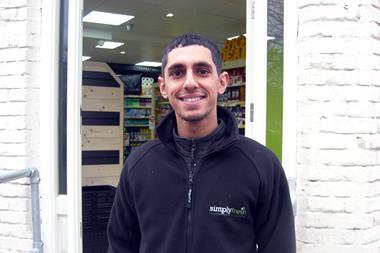
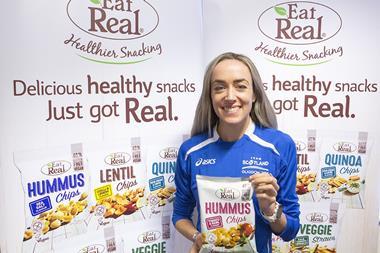
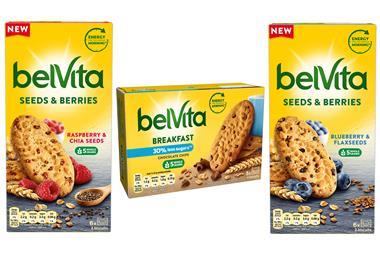
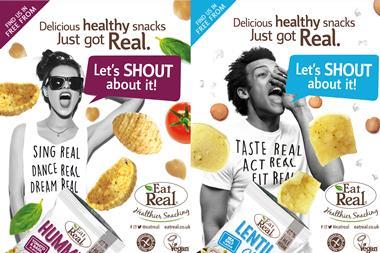
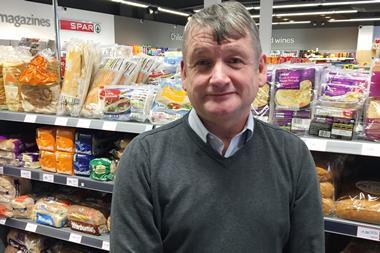
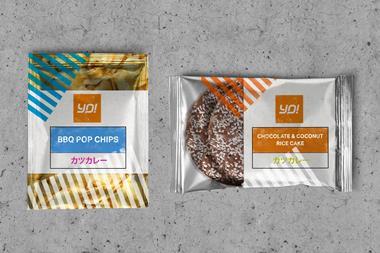
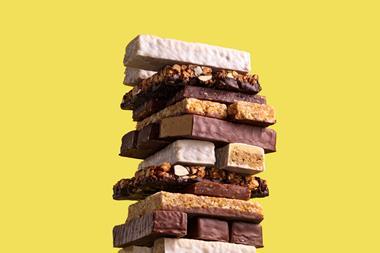

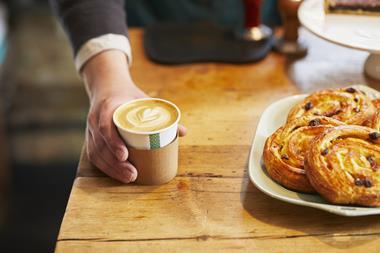
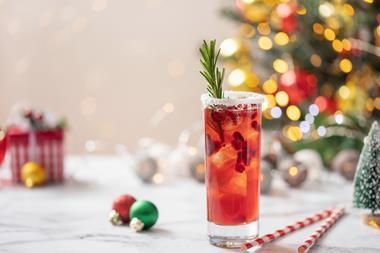


No comments yet